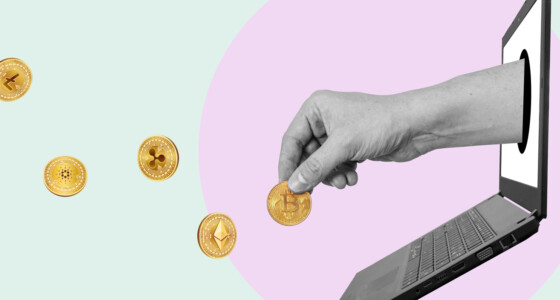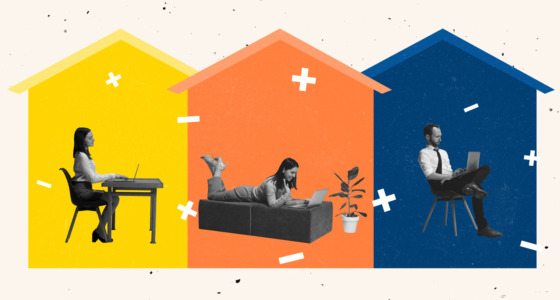

It’s an interesting time to argue about buying or renting. The U.S. Census Bureau shows that the national homeownership rate recorded in the first quarter of 2022 was 65.4%: about two-thirds of Americans owned homes. Over the last two years, it seems as if the entire last third of Americans have been racing to buy themselves homes.
So is it better to rent or buy a house? Well, there’s no fixed answer. Let us go into what makes each choice special.
Renting a home vs. Owning a home: an overview
Buying a home is a vital part of the ideal American dream. However, buying or renting is a big decision that can drastically affect your financial health, lifestyle, and goals. The option you choose depends heavily on your lifestyle and financial situation. Both require regular income (so you can pay the bills and related charges) and do require some effort to maintain. But many differences make renting and owning a home different.
Renting only comes with some of the responsibilities associated with owning a home, and you have more flexibility because you aren’t necessarily tied to your property. Owning your home can be a significant investment, but it comes with high costs upfront and in the long run.
However, owning a home is sometimes better than renting, and renting isn’t always as easy as it seems. Here, we outline some essential differences between renting and buying a home.
Renting a home
The biggest myth about renting is that you’re giving away money every month. This is not true. Of course, you need a place to live, and this will always cost you money in one way or another. While it’s true that you don’t use your monthly payments to build equity, remember that not all home ownership costs go toward building equity, either.
When you rent a place to live, you know exactly what your monthly living cost will be. This amount is listed on your lease, and you can plan your budget accordingly. In some cases, the landlord might also include other costs within this amount. These include utilities, security, and homeowner association fees (HOA) if you live in a condo.
Unfortunately, as a renter, you can experience a rent increase each time your lease is renewed. These increases can be especially significant if you live in certain parts of the city with increasing values. This might not be the case if you live in an area with rent control measures, which limits the amount a homeowner can raise if needed.
Living on a rented property means you can move out at the end of your lease. However, it also means that you might have to move suddenly if the landlord decides to sell the property or repurpose it for whatever reason. Less dramatically, they might raise the rent to higher than you can afford.
Owning a home
Homeownership comes with material and mental benefits. Since the house is yours, you can customize every detail of its shape and design. You also get a sense of security and pride in ownership.
However, changing your mind about where you live can be expensive because real estate is an illiquid commodity. You may not be able to sell if necessary. And even if you do, you might not be able to sell it at the price you want, especially if the real estate market is low. Additionally, there are significant transaction costs associated with selling your property.
The additional costs of owning a home mean it is often higher than renting. Even if your mortgage payments are lower than the rent, there are some things you’ll need to spend money on as a homeowner that you wouldn’t normally pay as a renter:
- property tax;
- garbage collection (some landlords require tenants to pay for this);
- water and sewer service (some landlords require tenants to pay this);
- pest control;
- pruning trees;
- home insurance;
- pool cleaner (if you have a pool);
- flood insurance required by the lender (in some cases);
- earthquake insurance (in some areas).
Almost all of your monthly payments in the first few years of a long-term mortgage will go to covering just the mortgage interest. For example, you’ll spend about $72,000 in interest on a $100,000 loan at 4% over 30 years. It can take up to 13 years before your payments begin to go toward repaying the principal balance of a 30-year mortgage. Of course, if you can itemize, you’ll get part of it back with a tax deduction.
Let’s remember the repairs and maintenance costs, which can be expensive. You may end up with unexpected cracks in the roof. Replacing your home roof can cost you an additional $12,000, which your home insurance policy might not cover.

Key differences
It’s time to look at the main differences between owning and renting a house.
Property values
As mentioned above, home ownership is often discussed as a way to create prosperity. But like any other investment, some factors can positively or negatively affect your home’s value, including:
- economic issues;
- outdated interiors;
- maintenance;
- housing surpluses;
- exterior conditions (your unruly neighbor’s uncut front yard littered with old Christmas decorations can impact your home’s value too);
- environmental concerns, such as nearby landfills and hazardous waste sites.
Of course, these factors can affect renters too and help lower your rental costs. After all, lower property values and poor living conditions can make the landlord desperate for income, helping you get a slashed monthly price.
Tax benefits
Owners can benefit from certain tax benefits. Mortgage interest deductions can reduce out-of-pocket expenses at the beginning of the loan as long as they are itemized.
Of course, you won’t benefit from any mortgage rate deductions if you’re a renter. However, remember that you can still use the standard deduction available to all taxpayers. The same goes for owners who don’t have sufficient deductions to itemize.
Repairs and maintenance
As mentioned above, ownership means that you are always responsible for the upkeep and maintenance of your place. This can be very expensive. To worsen it, renovation work does not increase the value of your home. You probably will not recover the costs of your renovations when you choose to sell the house.
If the community you live in has an HOA, this can relieve you of some of your homeowner’s responsibilities, usually costing you a few hundred dollars monthly. But beware of the headaches that membership can bring. If you rent a house, the landlord will be responsible for all repairs and maintenance, although this is completed slowly and to your satisfaction.
The best investments you can make are simple lawn or exterior additions. Focus on the basics. The only renovation that comes close to paying off its value in full is repairing the garage door (according to Remodelling’s list).
Time сommitment
If you want to spend your evenings and weekends as leisure time, work long hours, or travel frequently, the commitment that comes with home ownership might be too much for you. There’s always a task or job you need to get done, whether it’s plumbing, replacing steel pipes, painting the house, or mowing the lawn.
Special сonsiderations
The final decision to rent or own depends on your financial situation. However, do take into account your comfort and your plan for the future. Ignore those who say owning a house is always more sensible in the long run or that renting wastes money. Also, ignore those who say purchasing is ideal if renting is more expensive than your monthly mortgage payment. Real estate prices and living conditions vary too much to make general statements like these.
Before you do anything, consider the risks and responsibilities involved, especially when buying a home. Getting a favorable mortgage usually requires a lot of financial strength. If house prices rise, those with mortgages can make significant gains.
However, on the other hand, you can also lose money if prices fall. Keeping an eye on the Case-Shiller index is critical to avoiding this. If the prices are too high at the moment, renting for a few years may make more sense.
However, despite the risks, added costs, and other responsibilities, owning a home is the option many people prefer over renting. It provides a more permanent, stable space for a calm lifestyle. It is also the only way to achieve or design the specifics of the type of residence people want. Ultimately, the decision to rent or own is not just about money. It is also emotional.
Is it better to rent or own a home?
There is no one-size-fits-all answer to whether renting or owning a home is better. The answer depends on your situation: your finances, lifestyle, and goals. You should consider the benefits and costs of each one based on your income, finances, and lifestyle.
Is renting cheaper than owning a home?
Renting a home can be a very straightforward cost. You know your recurring payment and can plan your finances according to it. On the other hand, if you like living lavishly, you might find that renting is cheaper than owning a home, even with the regular repairs and maintenance that come with buying a home.
Is homeownership a good investment?
Buying a home can be an excellent investment. You can create equity, but like any investment, the performance of your investment depends on many factors. Regarding housing, factors like location, maintenance, the economy, and environmental concerns affect the overall value. Additionally, the market is never static; things can change rapidly.
The bottom line
After working out the complete finances of owning a house, you might find that renting a place might be a more financially sound decision. The extra funds you’d save can be kept in a savings account or invested in stocks. But if it suits your lifestyle. Otherwise, buying a house will be the right decision for you.









